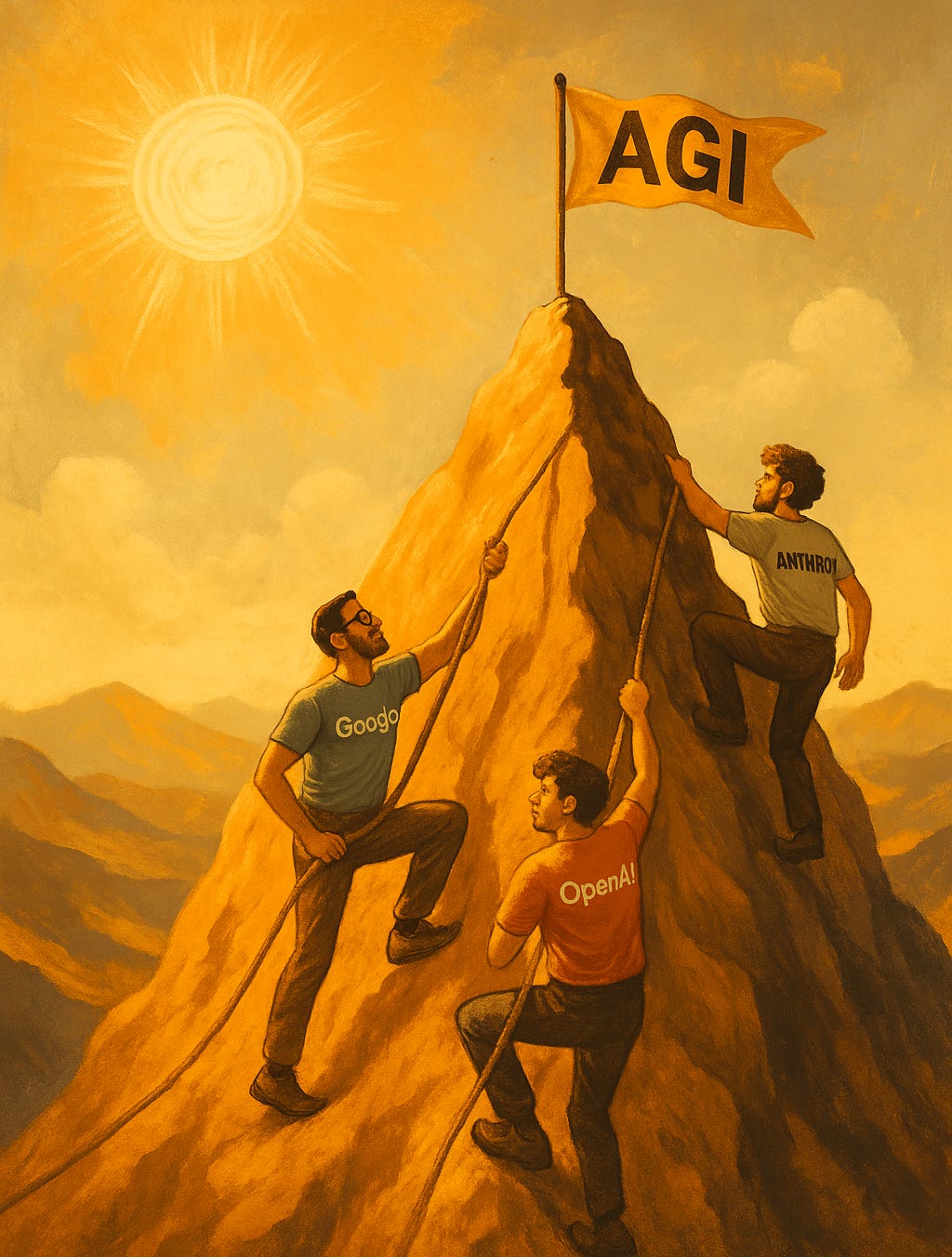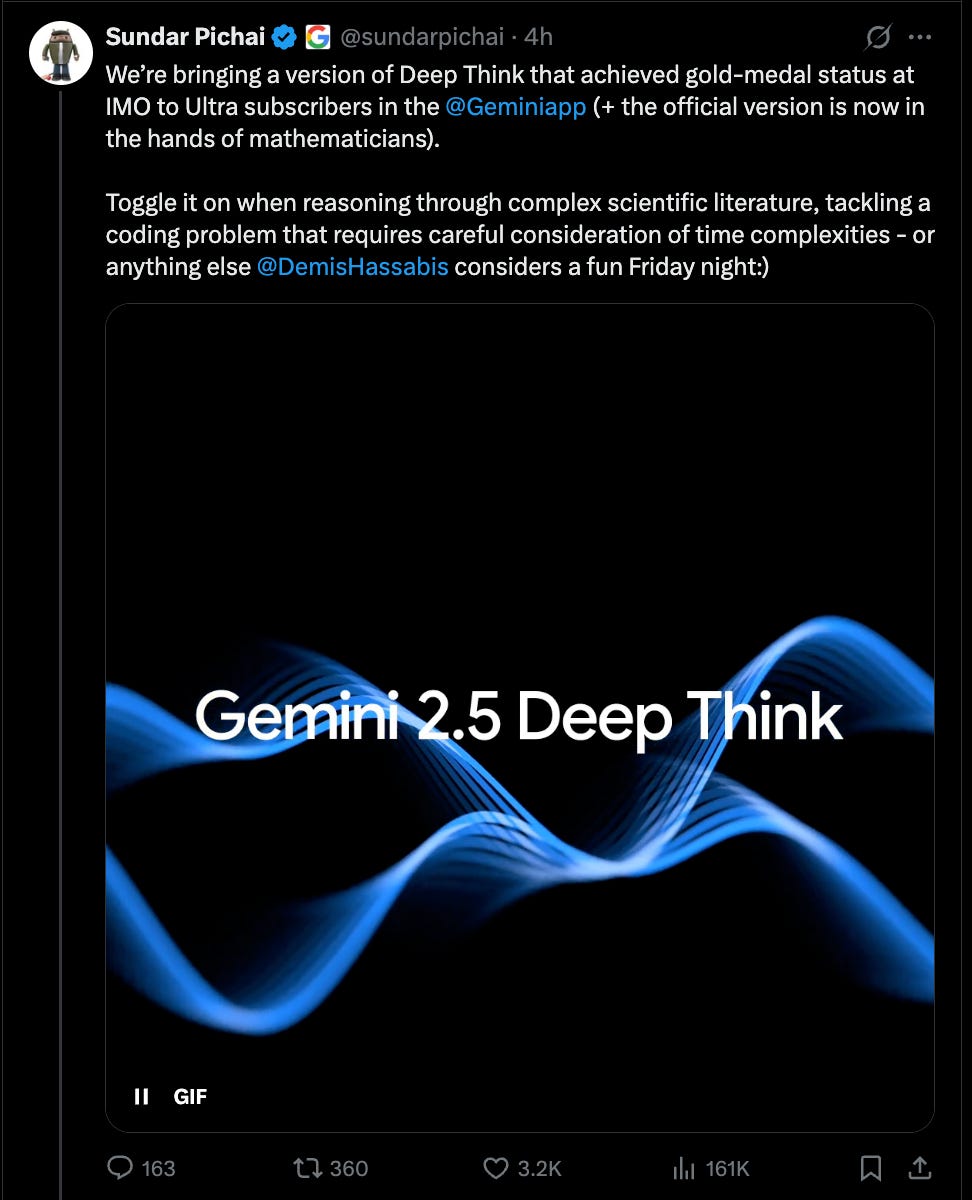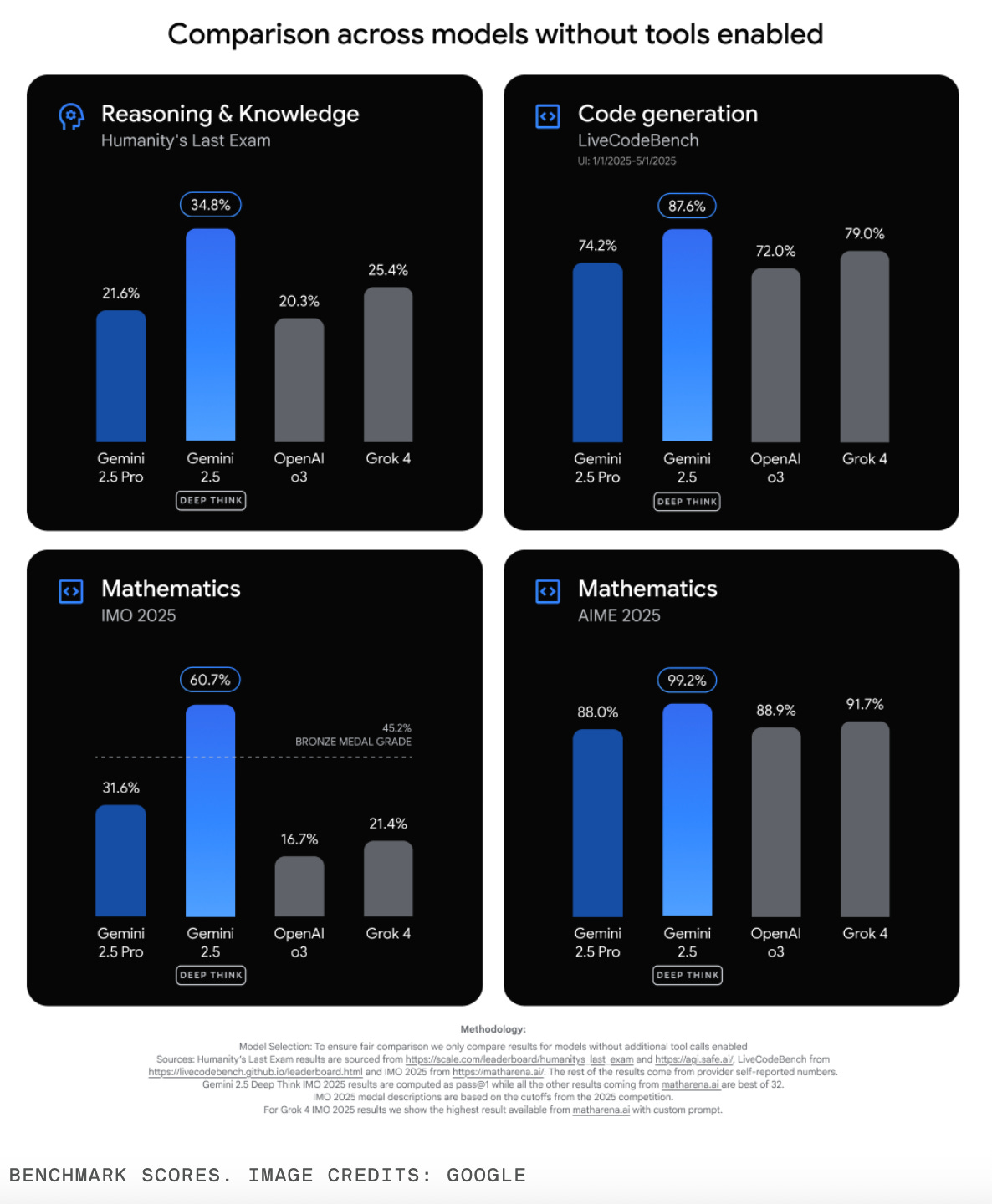Hot AI Summer: Google Thinks, OpenAI Negotiates, Anthropic Codes
AGI on the Horizon, Business in the Trenches
Hot AI Summer is in full swing. Even as GPT-5 rumors swirl in a never-ending game of “any day now,” Google dropped something real: Gemini 2.5 Deep Think - its most advanced reasoning model to date.
Originally unveiled at I/O 2025, Deep Think is Google's first publicly available multi-agent model. Instead of a single agent following one line of thought, Deep Think spawns multiple agents to explore different reasoning paths in parallel - a computationally heavy but logic-rich approach. Think ensemble methods, but make it generative.
Famously, a variation of this model won a gold medal at the International Math Olympiad. Google’s top-tier version, which “takes hours to reason”, is being released to a select group of academics. For the rest of us, the consumer version achieves SOTA performance on Humanity’s Last Exam: 34.8% for Gemini 2.5 Deep Think vs 25.4% for Grok 4 and 20.3% for OpenAI’s o3.
Gemini’s technical depth is impressive, but as always with Google, the gap between cutting-edge research and productization remains a strategic question.
Meanwhile, when he’s not vagueposting about GPT‑5 being so powerful it scared him, Sam Altman is busy overseeing OpenAI’s rocketship of a P&L. Reportedly:
ARR just jumped from $10B in June to $13B - and is now pacing to hit $20B by year-end.
700M weekly active users, up from 500M in March
5M business subscribers for ChatGPT, up from 3M a few months ago
An $8B annual burn that, somehow, doesn’t scare investors
A $300B valuation, $8.3B raised months ahead of schedule, with the round reportedly 5x oversubscribed
But beneath the growth metrics lies the most dramatic subplot: OpenAI and Microsoft are locked in a high-stakes standoff over a clause no one thought would ever matter. Their original 2019 deal includes a nuclear trigger - the moment OpenAI declares it has achieved “AGI,” Microsoft loses access to its technology. At the time, it was a philosophical hedge. Today, it's a very real threat.
Now, with AGI no longer a sci-fi punchline but a credible near-term milestone, Microsoft is refusing to approve OpenAI’s conversion into a fully for-profit entity until the clause is restructured. The talks have escalated into a full renegotiation: Microsoft would retain access to OpenAI’s latest models even after AGI - in exchange for a 30–35% equity stake, greater board control, a smaller revenue share, binding safety commitments, and more operational autonomy for OpenAI. A throwaway line from 2019 has become the fault line for one of the most consequential partnerships in tech- a sign of how quickly the tech (and the stakes) are accelerating.
And then there’s Anthropic. Quietly, methodically, raking it in. Anthropic’s annualized revenue just hit $5B, up from $4B - earlier this month. They’re in talks to raise $5B at a $170B valuation, a stunning figure for a 4-year-old company that came up from behind in the model race.
Anthropic has taken the lead in one of the few commercially proven GenAI use cases: code generation. According to Menlo Ventures, Anthropic has 42% share of the $1.9B code generation market vs OpenAI with 21%.
Claude Code alone is generating $400M ARR, up 2x in just weeks. Their top two customers (likely Cursor and GitHub Copilot) account for $1.2B of revenue. Even excluding those, revenue has 11x’d year-over-year
And unlike OpenAI, they’re flirting with efficiency with 60% gross margins, versus OpenAI’s ~40%. If you include training costs in COGS, OpenAI goes to -12% margins while Anthropic is breakeven. Anthropic is selling investors a story of efficiency, not just scale.
All three labs are still pointing at the AGI endgame. But that horizon is fuzzy and they're scaling it in different ways:
Google is betting technical depth will translate into trust.
OpenAI is betting scale and velocity will create an unassailable platform.
Anthropic is betting focus and margins will matter when the market matures.
Forget AGI, the much more immediate war is who can turn intelligence into revenue.





Very interesting report. Margins and profitability are somewhere irrelevant that early in the game of AI. You need to gain market shares (and keep your installed base happy). I find it funny big tech keep making claims on AGI. The current model and transformer architecture cannot achieve AGI. Perhaps something big and new is coming but this is won't be on the current infra; and not on the current GPUs. Obviously if I was Sam, I would play the AGI carrot to Microsoft to negotiate a better deal :-)